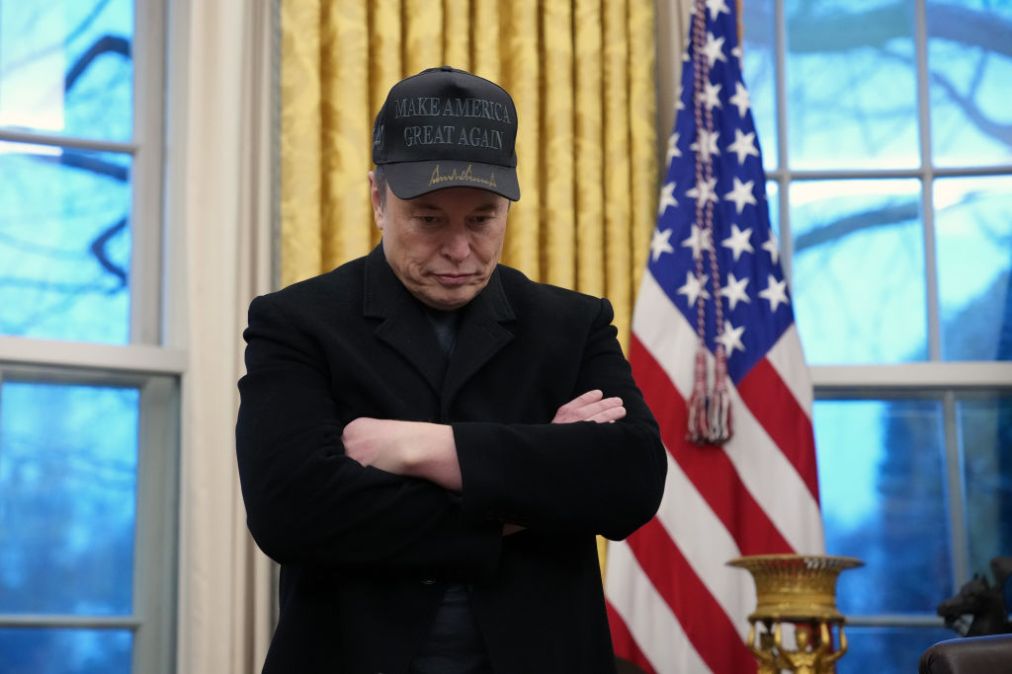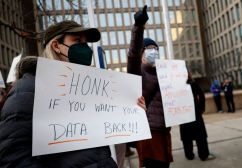Federal judge denies request to block DOGE, Musk from seven agencies’ data systems

A federal judge Tuesday denied a request from Democratic attorneys general to temporarily cut off Department of Government Efficiency access to U.S. government IT systems, delivering a blow to states aiming to sideline the ongoing Elon Musk-led data expedition at agencies.
Judge Tanya Chutkan of the U.S. District Court for the District of Columbia ruled that the states did not show that they would “suffer imminent, irreparable harm absent a temporary restraining order.” The state AGs had argued that Musk’s actions in deploying DOGE surrogates to root around in federal computer systems violated the Constitution’s appointments clause due to the fact that he has not been nominated by the president and confirmed by the Senate.
Though no one has been more closely associated with DOGE than Musk, a Trump administration official said in a court filing Monday that the world’s richest man is merely a senior advisor to the president and not a DOGE employee or the DOGE administrator.
Prior to that assertion, the states — New Mexico, Arizona, Michigan, California, Connecticut, Hawaii, Maryland, Massachusetts, Minnesota, Nevada, Oregon, Rhode Island, Vermont and Washington — said that Musk and DOGE had demonstrated “virtually unchecked power across the executive branch” despite lacking “statutory authority for their actions.”
The attorneys general pointed specifically to DOGE’s accessing of sensitive data and infrastructure throughout the federal government and “making decisions about expenditures, contracts, government property, regulations, and the very existence of federal agencies.”
In revising their proposed temporary restraining order Friday, the plaintiffs asked Chutkan to block the defendants from accessing, copying or transferring any data systems housed within the Office of Personnel Management and the departments of Commerce, Education, Energy, Health and Human Services, Labor and Transportation. The AGs also sought to block DOGE from firing or placing on leave any staffers at those agencies.
Chutkan acknowledged in her ruling that the state AGs’ “colorable” appointments clause claim did raise “serious implications” given the fact that “DOGE’s unpredictable actions have resulted in considerable uncertainty and confusion for Plaintiffs and many of their agencies and residents.” But she also noted that widespread media reports of mass terminations “cannot substitute” affidavits or verified complaints containing specific facts, nor do they demonstrate immediate and irreparable harm.
“Plaintiffs legitimately call into question what appears to be the unchecked authority of an unelected individual and an entity that was not created by Congress and over which it has no oversight,” Chutkan wrote. “In these circumstances, it must be indisputable that this court acts within the bounds of its authority.”
Despite Chutkan’s ruling, DOGE isn’t out of the woods yet with regard to the appointments clause. In the U.S. District Court for the District of Maryland, a group of 26 federal government workers, backed by the State Democracy Defenders Fund, filed a preliminary injunction Tuesday night in their lawsuit against Musk and DOGE. The plaintiffs allege that they have suffered ongoing reputational and emotional injuries due to DOGE’s acts.
This story was updated Feb. 19, 2025, to include details on another lawsuit against DOGE.






